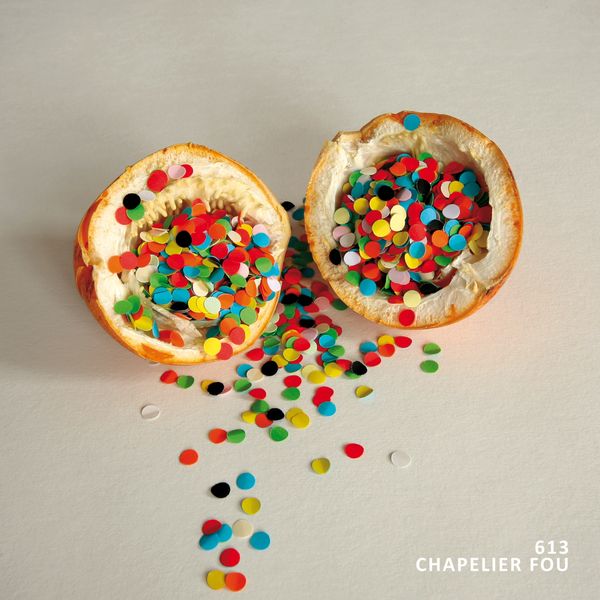Ludi Klobučar Louis Warynski otapa violinu u pozadinskoj kiselini trip-hopa. Dobar francuski izvoz.
streaming
soundcloud
MySpace
An exploration of electronic-classical and classic-electronic: Chapelier Fou Interview

French musician and producer Chapelier Fou has, despite his relatively young age, managed to strike a musical harmony foreign to that of even seasoned musicians. His music is a blend of frantic and eccentric electronic rhythms resting underneath featured smooth violin melodies, a pleasure both to the ear and the intellect.
His classical background and undeniable skill as a violinist combines with his uniquely inventive and precise approach to electronic music production to create a sound distinct and unforgettable; a vibrant portrait consisting of both modern and classical elements.
During his recent tour of Australia on the back of his recent release Invisible, Cyclic Defrost asked questions of the “electro-glitch-classical mastermind” to get an insight into his creative process, his views on his music, and the way in which he translates the madness of his recorded material to a live setting.
Cyclic Defrost: How have you worked to maintain a balance between the acoustic and electronic elements of your music?
Chapelier Fou: I’ve been classically trained since I was a kid. So, classical, acoustic instruments are what put me into music and thus remain my most natural way to play. However on the other hand, I’ve come to composition mostly with computer music. I’d say that the electronics and computers are my compositional base while acoustic instruments are more into freedom and feeling without too much thinking…
Do you find that they complement each other, or is there one that you put more focus on when writing?
I think I couldn’t work without a computer, at least not when I am making music alone. It does allow me to put concepts and abstract thinking into music, which is something I really like to do, but when it comes to melodies and expression, nothing can replace an instrument made of wood.
Invisible goes to highlight your strengths both with production and with instrumentation, demonstrating your diversity as an artist. Did you take into consideration maintaining this balance when writing the tracks?
I’m not trying to demonstrate anything, I am just proposing something that is, I guess, the consequence of what I am interested in at a certain time. Recently I’ve been really into old analog synthesizers and drum machines, FM synthesis and randomizing rhythms.
With the violin being your main instrument, do you structure your writing process around it, or is it just another element of your diverse ensemble?
It totally depends. I don’t have any systematic way of working. Ideas could come from the violin, but most of the time, it comes very late in the compositional process. I spend much more time working on harmonies, creating sounds, sampling various objects and toys, twisting software and experimenting with analog gear.
Your music is quite eclectic and deep, both in instrumentation and in structure, is this a product of your background in music?
I can’t deny that! I am still very influenced with the ‘classical’ approach of composition, in terms of structures, forms, concepts, etc.
Has music always been what you wanted to pursue in life, or did you end up falling into it unintentionally?
It happened quite randomly. I’m meant to be a music teacher. I am a musician by accident.
Do you find it difficult to play your music live, considering how intricate and layered it is?
Difficult for sure, but I think it’s worth it. I tend to think that performing music on stage is meant to be hard; there is no point in going on stage if you’re not taking risks. Playing live is all about putting yourself in an uncomfortable situation, having opportunities to make mistakes.
Following on from that, do you write your music with how it will translate into a live context in mind, or is that something that you take into consideration when you come to it?
It depends on the songs. Some are totally made on the computer, and then I try to find a way to play them, which involve a total re-thinking of the song. Sometimes it’s the contrary.
Have you found your music/live show to be received differently by international audiences? Or is there generally a similar response by fans of your music?
I am not sure, but I reckon music, and especially music without words, has something universal. So I don’t really feel any difference between audiences. Anyway, I’m closing my eyes 90 per cent of the time when I am playing.

613 (2010) streaming
Al Abama (2011) streaming

Darling, Darling, Darling (2009) streaming

Scandale! (2009) soundcloud

Nema komentara:
Objavi komentar